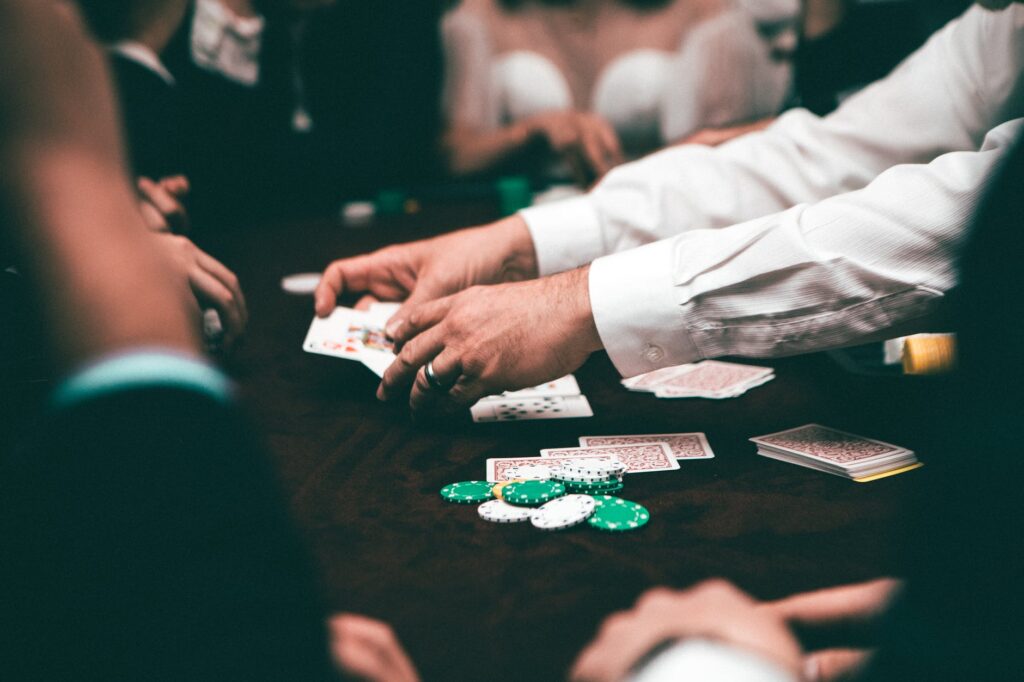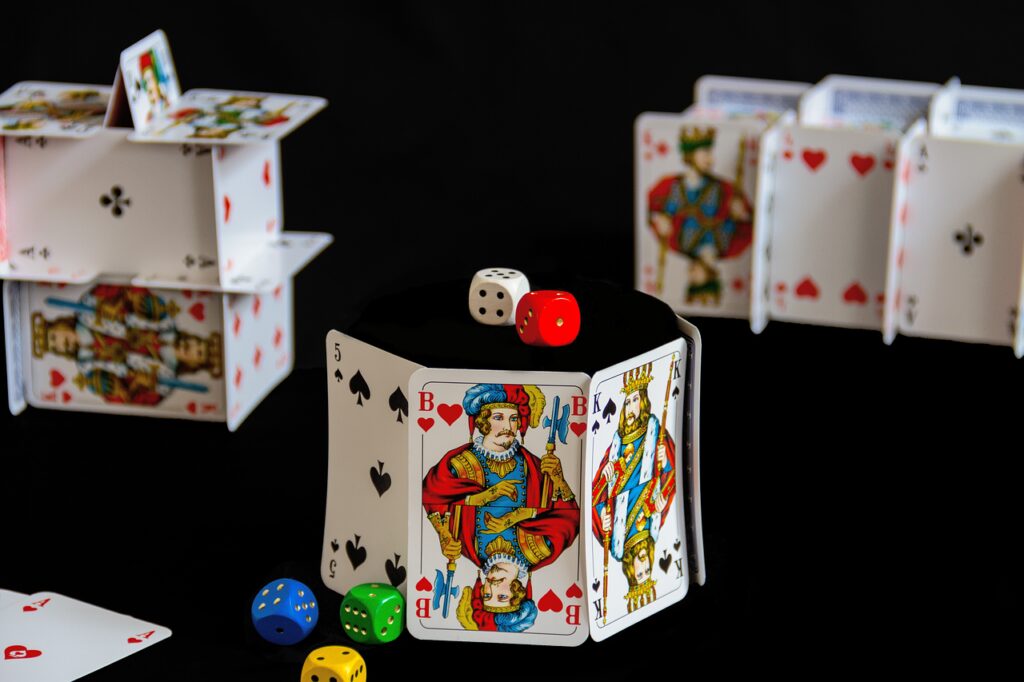
Gambling isn’t what a lot of people tell you it is. Put it this way. People on the stock market are gamblers, despite what they’ll say to justify themselves. The definition of gambling as risking money or other stakes on a bet. Well, on the stock market, financiers are making educated bets with large amounts of money.
Now, they’re not doing it for fun, and sometimes the way they make dependable income involves underhanded activity. But it’s still a gamble. In all gambles, equity is put down toward an indeterminate future outcome. It’s impossible to see what will happen, but given a little education, you can “guess” what’s most likely.
Gambling can be a skill; however, even then, it’s not wise to pursue this mode of living. Sure, you might be “up” for years; but then you’ll be “down” for years. It’s like surfing. Even the most skilled surfers “wipeout”. And in order to learn how to balance on the board, you’ve got to “wipeout”. Once you learn, you can slide down beautiful “half-pipes” formed by curling waves.
Well, with gambling, you will win, and you will lose, and there are factors beyond those you choose which will determine the outcome of a given bet. It’s wise to be financially savvy with your wagers so you never lose more than you can sustain. Doing so will help you gain strength and savvy in wagering. With that in mind, we’ll cover safe and fun gambling tips here.
1. Set Yourself An Ironclad Limit

Without a limit, you’re going to keep getting back on that gambling “surfboard” long after you’ve exhausted your ability to “balance” between waves of wagers. No matter what kind of gambling you do, you want to set yourself a limit. Think of it as the price of admission for the fun of wagering.
When you walk into a casino, just set yourself on “losing” a hundred bucks. Then here’s what you do: you make your wagers on slots, with cards, on craps, on the races, on the fights, or whatever fits your particular tastes. When you double your money, put your initial investment in your pocket, and start over.
Essentially, try to make back your limit and have fun with the rest. If you don’t make back your limit, then call it a loss and do something else for the night. You’ll find this as you gamble: the “luck” tends to come in waves randomly, and when you’re in it, you’re in it. But when you’re not in it, it’s about impossible to make lady luck smile on you.
2. Understand All The Games Intrinsically

When you get how the games you’re involved with work, you’re generally going to do better. Certainly, there is such a thing as beginner’s luck with poker. New players don’t know the hands, so they don’t realize when they’re winning or losing and simply throw their money in the pot with each round to keep up with others at the table.
Accordingly, they’ll bluff better than anybody; they don’t know the stakes. So there is an element of “beginner’s luck” that does hold true with most games. However, when you understand the dynamics at play, you can more efficiently wager. Understand how bookies and odds work. Get your head around odds with craps. Learn poker hands.
With the understanding of how varying games of chance work, you’ll be better enabled to make bets which are primed to win. Without that understanding, you may strike it lucky a few times, but there’s a higher likelihood you’ll win a few minor wagers, then end up chasing those wins until you run out of cash.
3. Explore A Variety Of Different Gambling Media

Don’t stick with one sort of gambling solely. Go to casinos, go to races, go to fights, and play online. Variety is fun and builds experience. Online gambling can actually be a rather diverting pastime, but finding safe options that aren’t too deeply “manipulated” is definitely a challenge. For some online options, you can trust, check out AllGambling.
4. Getting The Most Fun Out Of Gambles And Wagers

When you try different sorts of gambling, understand how all the games work intrinsically, and set yourself an ironclad limit, you’ll always have fun gambling, and you’ll never lose money—you might just have an “expensive night of entertainment”.
Honestly, provided you’ve got a good job and some savings, that limit might be as high as $1k without hurting you. You’ve just got to understand when to quit, how to play, and that some entertainment is more costly than ever.
If you were in the midwest and went to a Broadway show, travel, lodging, and tickets would be in the neighborhood of $1,000. An average week’s cost for such a vacation would be around $3.3k. Would you be sad you went? Well, think of gambling like entertainment on that level, and budget out your wagering funds accordingly.







